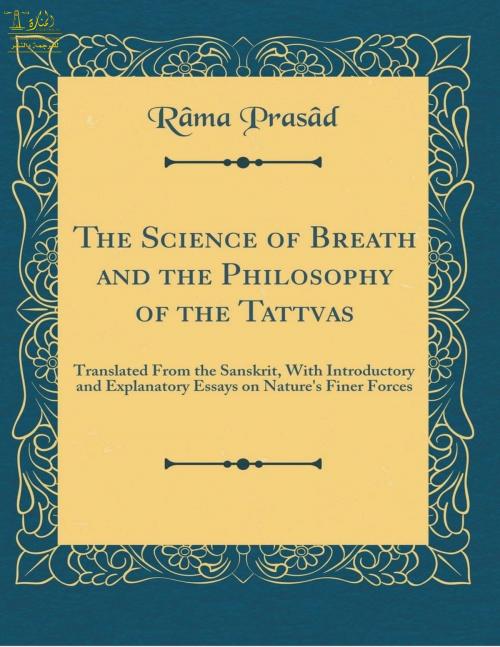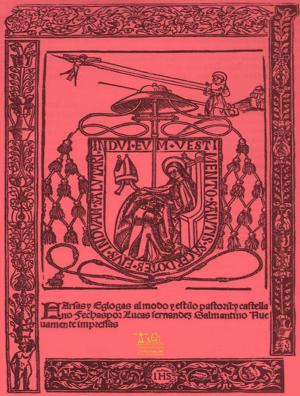The Science of Breath & the Philosophy of the Tatwas
Nonfiction, Reference & Language, Education & Teaching, Educational Theory, Philosophy & Social Aspects, Religion & Spirituality, Philosophy| Author: | Rama Prasad, Mustafa Kayyali | ISBN: | 9783590215108 |
| Publisher: | Lighthouse Books for Translation Publishing | Publication: | January 25, 2019 |
| Imprint: | Lighthouse Books for Translation | Language: | English |
| Author: | Rama Prasad, Mustafa Kayyali |
| ISBN: | 9783590215108 |
| Publisher: | Lighthouse Books for Translation Publishing |
| Publication: | January 25, 2019 |
| Imprint: | Lighthouse Books for Translation |
| Language: | English |
Rama Prasad is best known for a series of articles published in nine parts in the The Theosophist under the name "Nature's Finer Forces" in 1887-1889, and for the book The Science of Breath & the Philosophy of the Tatwas that was based on those articles. His translation of an ancient Sanskrit text gives a very detailed view of the nature of breathing and the tattvas (elements of reality, in classical Samkhya Hinduism). The author emphasized the scientific nature of traditional Indian religious thought. These writings were quoted extensively in other works, and became highly influential.
After the Esoteric Section of the Theosophical Society was officially formed on October 9, 1888, Madame Blavatsky wrote about the practice of concentration and its inherent dangers. While she valued Rama Prasad's translation, she indicated that he was a Sanskrit scholar rather than an occultist and that practices described in his work could only be applied with great caution:
In the Book of Rules I advice students to get certain works, as I shall have to refer to and quote from them repeatedly. I reiterate the advice and ask them to turn to The Theosophist [Vol. IX] of November, 1887. On page 98 they will find the beginning of an excellent article by Mr. Rama Prasad on "Nature's Finer Forces."* The value of this work is not so much in its literary merit, though it gained its author the gold medal of The Theosophist - as in its exposition of tenets hitherto concealed in a rare and ancient Sanskrit work on Occultism. But Mr. Rama Prasad is not an Occultist, only an excellent Sanskrit scholar, a university graduate and a man of remarkable intelligence. His Essays are almost entirely based on Tantra works, which, if read indiscriminately by a tyro in Occultism, will lead to the practice of most unmitigated Black Magic. Now, since the difference of primary importance between Black and White Magic is simply the object with which it is practiced, and that of secondary importance, the nature of the agents and ingredients used for the production of phenomenal results, the line of demarcation between the two is very, very thin. The danger is lessened only by the fact that every occult book, so called, is occult only in a certain sense; that is, the text is occult merely by reason of its blinds. The symbolism has to be thoroughly understood before the reader can get at the correct sense of the teaching. Moreover, it is never complete, its several portions each being under a different title and each containing a portion of some other work; so that without a key to these no such work divulges the whole truth. Even the famous Saivagama, on which "Nature's Finer Forces" is based, "is nowhere to be found in complete form," as the author tells us. Thus, like all others, it treats of only five Tattvas instead of the seven in esoteric teachings...
Rama Prasad is best known for a series of articles published in nine parts in the The Theosophist under the name "Nature's Finer Forces" in 1887-1889, and for the book The Science of Breath & the Philosophy of the Tatwas that was based on those articles. His translation of an ancient Sanskrit text gives a very detailed view of the nature of breathing and the tattvas (elements of reality, in classical Samkhya Hinduism). The author emphasized the scientific nature of traditional Indian religious thought. These writings were quoted extensively in other works, and became highly influential.
After the Esoteric Section of the Theosophical Society was officially formed on October 9, 1888, Madame Blavatsky wrote about the practice of concentration and its inherent dangers. While she valued Rama Prasad's translation, she indicated that he was a Sanskrit scholar rather than an occultist and that practices described in his work could only be applied with great caution:
In the Book of Rules I advice students to get certain works, as I shall have to refer to and quote from them repeatedly. I reiterate the advice and ask them to turn to The Theosophist [Vol. IX] of November, 1887. On page 98 they will find the beginning of an excellent article by Mr. Rama Prasad on "Nature's Finer Forces."* The value of this work is not so much in its literary merit, though it gained its author the gold medal of The Theosophist - as in its exposition of tenets hitherto concealed in a rare and ancient Sanskrit work on Occultism. But Mr. Rama Prasad is not an Occultist, only an excellent Sanskrit scholar, a university graduate and a man of remarkable intelligence. His Essays are almost entirely based on Tantra works, which, if read indiscriminately by a tyro in Occultism, will lead to the practice of most unmitigated Black Magic. Now, since the difference of primary importance between Black and White Magic is simply the object with which it is practiced, and that of secondary importance, the nature of the agents and ingredients used for the production of phenomenal results, the line of demarcation between the two is very, very thin. The danger is lessened only by the fact that every occult book, so called, is occult only in a certain sense; that is, the text is occult merely by reason of its blinds. The symbolism has to be thoroughly understood before the reader can get at the correct sense of the teaching. Moreover, it is never complete, its several portions each being under a different title and each containing a portion of some other work; so that without a key to these no such work divulges the whole truth. Even the famous Saivagama, on which "Nature's Finer Forces" is based, "is nowhere to be found in complete form," as the author tells us. Thus, like all others, it treats of only five Tattvas instead of the seven in esoteric teachings...















